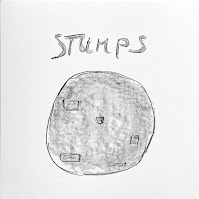 |
| Jacques Demierre, Jonas Kocher, Axel Dörner (L-R). Photo by Damir Žižić |
The recent concert in Zagreb by three European masters of free improvisation, pianist Jacques Demierre, trumpeter Axel Dörner, and accordionist Jonas Kocher, was one of those rare occasions when ordinary, oft explored and experienced objects and loci take upon alien and almost incomprehensible qualities. Take the semicircular hall of the Teatar &TD theatre in which the trio’s concert took place. Having lost count of the many great performances I’ve witnessed there, I didn’t think it was possible for the venue to surprise me ever again. Yet, I’ve never felt it’s claustrophobic presence and absorbing, black hole-like nature as clearly as during Demierre, Dorner, and Kocher’s 50 minutes of improvisational genius. As if the hall’s specific acoustics and the pitch-black walls threatened to swallow the music but, instead, accentuated each phrase, catalyzed each interaction.
The start of the performance - subdued, anchored in meticulously woven microtones - seemed to specifically benefit from the chamber’s qualities. Emerging from a vacuum of their own, not quite here or there, minute, barely perceivable, yet strangely aggressive sounds emanated from Demierre’s piano while Dörner and Kocher followed with similarly muted hushes, whispers, and incisions. Each musician was scratching the surface of a body of music hidden in their minds, both individual and collective, and creating an overpowering sense of constant tension between the instruments and the permeating crescendos of silence. The trio’s game is a patient one, not so much trying to reach a goal, rather concentrating on the “here and now,” on listening to one another. Reacting and negating. Requesting and responding. The odd flashes of compositionally recognizable, familiar arrangements appeared and disappeared so quickly that they only seemed timed and premeditated. Signs of a fantastic synergy and understanding. The hallmarks of what we might call instant composition.
From the freely improvised segments arose harmonies, destructive resonances, and even bolts of melodies and rhythms. All of these elements discovered almost by accident. And when the three musicians finally converged and peaked through these imperceptible exchanges of ideas and careful explorations, they lunged into expressive, explosive improvisations made of harsh, violent sounds and contrasted with fragile and subtle microtonal touches. The room again played its part: the creaking of the floorboards peculiarly augmented Demierre’s gentle brushes on the strings and keys of the piano. On another occasion, the trio’s pummeling fortes were tortured and suffocated by the rumble of a train passing outside. Reacting to these stimuli, whilst the environmental noise subsided, Dörner and Kocher held prolonged, droning expressions and tones while Demierre smashed the piano’s keyboard with his arm. A statement ever so clear.
As much as it was interesting to observe the musicians’ interplay, the individual, instrumentally subversive performances were just as mesmerizing. Each of the musicians seemed physically confined to his own world, never even glancing at each other. Communicating, instead, using some form of calculated telepathy while finishing each other’s phrases and sentences. During these interactions, Kocher often imitated electroacoustic sounds and entertained tones that felt synthesized and artificial. Simultaneously, Dörner used his fascinating breathing and playing techniques to create white noise-like loops. Finally, Demierre explored the gamut of his piano’s sounds, including extremes that turned it into a purely percussive or string instrument, scraping the strings with nails, caressing the keys with his palms.
In the final minutes of the performance, there’s an acute period of silence. Unlike many other punctuating silences that came earlier during the evening, this one is heavier, deeper, and longer. It suggests that the music is closer to stopping than continuing, but the outcome has not yet collapsed into a state and the next step has not yet been decided. The music continues. It follows me to this day.
 |
| Jonas Kocher, Axel Dörner (L-R). Photo by Damir Žižić |
 |
| Axel Dörner. Photo by Damir Žižić |
 |
| Jacques Demierre. Photo by Damir Žižić |
















0 comments:
Post a Comment